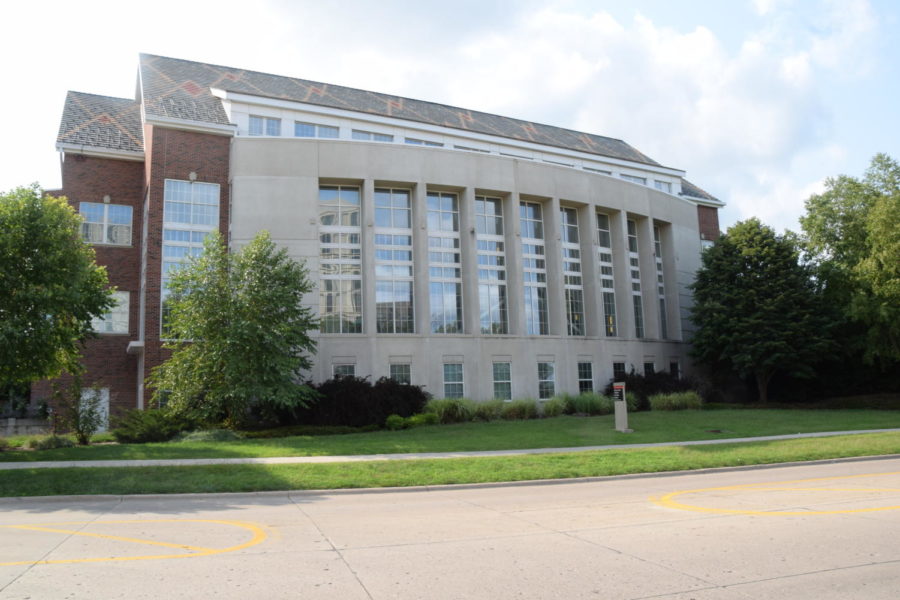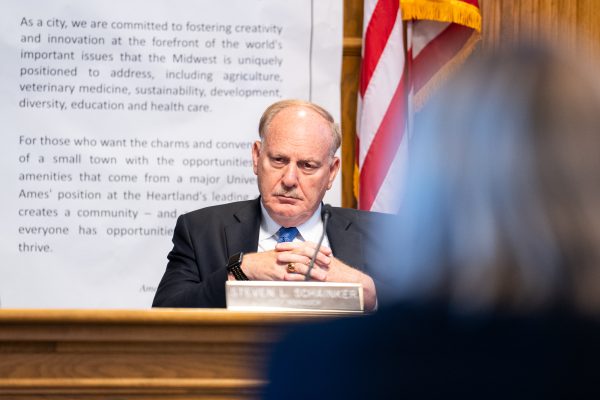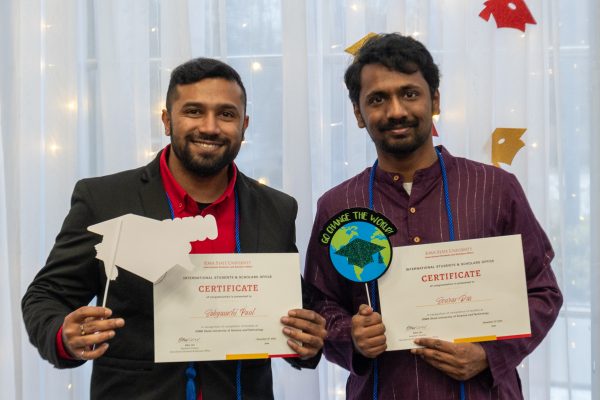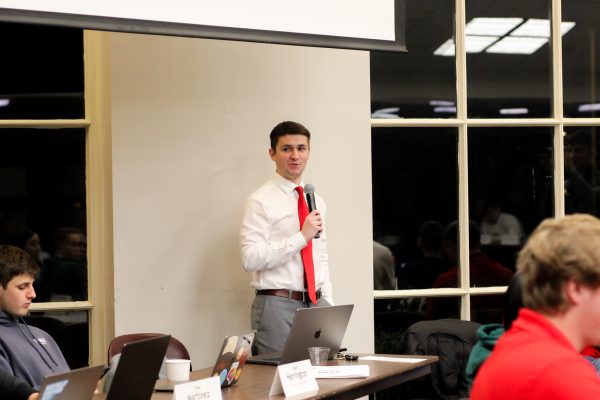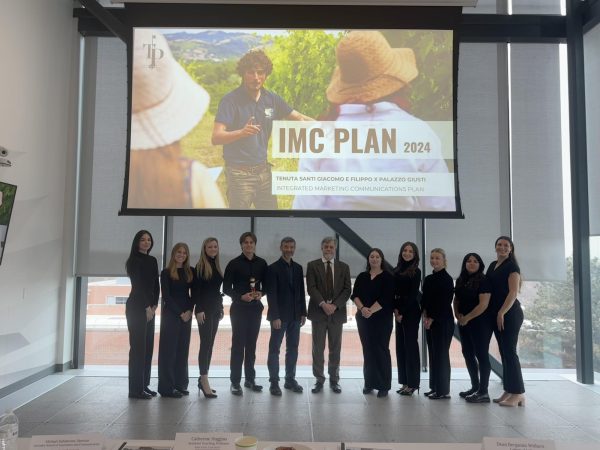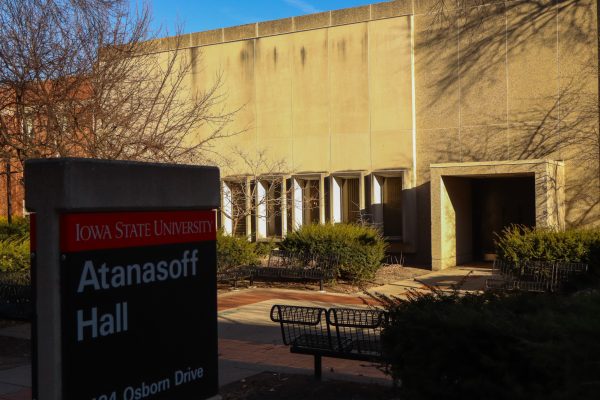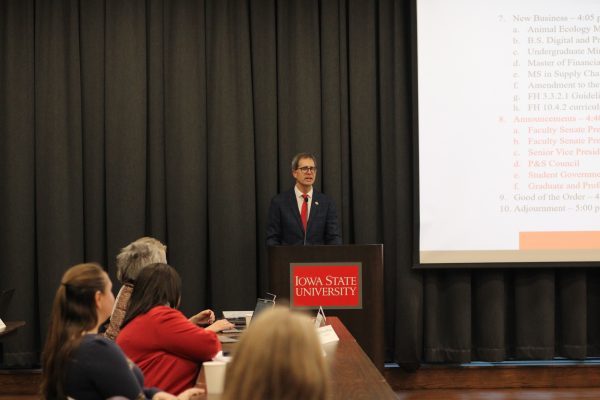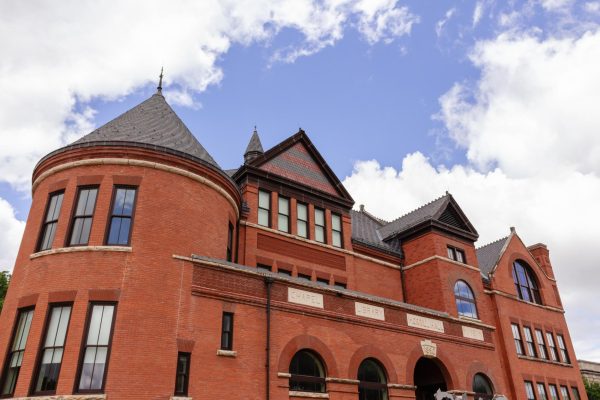Student Accessibility Services accommodating neurodivergence
The Hixson-Lied Student Success Center offers students a one stop shop for all of their academic support needs.
Iowa State’s Student Accessibility Services offers students a variety of accommodations to help even out the load of a college education.
Academic accommodations go beyond physical impairments, including a variety of services to help people cope with issues ranging from neurological function to emotional distress.
Services provided through the center can improve conditions in housing and dining, but Jamie Niman, accessibility coordinator for Student Accessibility Services, said most of the accommodations has to do with students’ academic affairs.
Niman said students who had academic accommodations during high school can submit documentation and be approved if accommodations are appropriate for college. Students who did not have accommodations in high school can also be eligible for accommodations, though they do need to show that they are eligible for said accommodations.
“Basically, we just need to find them eligible and identify that they are a student with disabilities,” Niman said. “[We] look at the disability, the accommodation request, how it’s connected to the disability and then we approve them and coordinate that.”
Academic accommodations can include things like low-distraction environments for tests or longer exam times but can also include things like access to software to streamline the learning process.
“Our largest categories are actually mental health disorders and neurodevelopmental [disorders],” Niman said. “Our highest number within a category for accommodations is anxiety for the disability categories, and so that anxiety category contains generalized anxiety disorder, PTSD, OCD, things like that.”
Iowa State is also pushing to make courses more accessible to people with some type of neurodivergence. This can mean including accommodating services within the course design but also more inclusive means of communicating with students.
“So [the Center for Excellence in Learning and Teaching] also promotes something called Universal Design for Learning, which is proactively implementing accommodations so that your course is naturally accommodating,” Niman said.
Macey Hofer, a senior in psychology, said that accessibility services are important for ensuring people get equal access to opportunities. Hofer said that Student Accessibility Services do a great job of working with students and providing them with the accommodations that they need to succeed.
“I would just say that the staff are amazing there,” Hofer said. “I have worked with a lot of them, just with planning Disability Awareness Week, and they’re all very passionate about giving every student accommodations; they’re just a great safe space”
Hofer said designing courses to accommodate neurodivergent students can improve conditions for all students, regardless of if they are afflicted with disabilities. Creating courses that accommodate students who simply struggle with focus makes course content more accessible.
“I think that our school system, in general, isn’t set up for neurodivergent people, and neurodivergent people deserve to have that access and accommodation,” Hofer said. “And just flexible teaching and flexible curriculum honestly would benefit all students.”
Flexible courses are also helpful for students who have less obvious or visible disabilities.
“A lot of times people with invisible disabilities aren’t recognized and noticed as this is a real thing that people deal with,” Hofer said. “And I just think it’s important that people with invisible disabilities get those accommodations because they’re oftentimes overlooked because they front and present themselves as neurotypical people.”
Students who believe they might need academic accommodations should go to the Student Accessibility Services website to complete a registration form.
Your donation will support the student journalists of the Iowa State Daily. Your contribution will allow us to purchase equipment, send our student journalists to conferences and off-set their cost of living so they can continue to do best-in-the-nation work at the Iowa State Daily.


